Executive Summary
Our Poverty Thought Force proceeded from a core commitment: poverty-alleviation ideas and strategies arise primarily from extended consultation with community members. Facing poverty’s stubborn persistence across our city/county and state and indeed the U.S. and globe, research shows that place-based solutions, generated and/or reviewed by local residents, are the likeliest route to improvement.
To better contextualize poverty in Winston-Salem and Forsyth County, we supplemented extensive community conversations with a commissioned study by Forsyth Futures. This identified four similarly-situated communities in the southeastern US, such as Roanoke, VA, and provided illuminating comparative demographic, economic, and sociocultural data.
Early in our conversations we identified five major areas of concentration, listed alphabetically:
- Education
- Health
- Housing/Homelessness
- Hunger/Food Insecurity
- Jobs/Workforce Development
We sought impactful, feasible recommendations in each of these areas. Those were generated by city/county residents, gathered at a series of community forums organized “world cafe” style. After organizing and refining an initial list of more than 150 recommendations, community members along with national experts rated those ideas in each of our five areas for impact (would the policy idea make a difference, if enacted?) and feasibility (does it have a chance of being implemented in the near future, in Winston-Salem/Forsyth County?). That yielded a more compact list of ideas, which were aired with local residents, most currently or recently living in impoverished conditions.
The final result, after further Thought Force review: 56 recommendations, spread across the five areas. Some are aspirational, requiring state and even national action/resources to be implemented (universal Pre-K for all city/county children, e.g.); others could be put in place in relatively short order, especially by building on existing programs.
Along with this ambitious list of policy ideas, our Thought Force produced two additional collections of recommendations.
- One quintet of ‘overarching’ suggestions grew out of our 15 months of deliberations and community conversations, and included ideas like better coordinating and promoting the wealth of existing anti-poverty efforts across the city and county, perhaps through creating an official position of “poverty czar” to supervise this vital work.
- A second set of suggestions: pursue membership in at least a few of the many national anti-poverty initiatives currently underway across the U.S. We identified and described nine such initiatives, such as the “Purpose-Built Communities” program which has now worked with 20 low-income neighborhoods in cities from Charlotte and Durham to Kansas City. Additional such initiatives will be added in coming weeks/months to the Poverty Thought Force website [povertythoughtforce.com].
We would also note that along with the accompanying Thought Force report listing our 56 recommendations, an appendix includes for each policy idea: 1) one or more representative examples of local organizations/groups already doing related work, or calling for such an effort; and 2) verbatim reactions/suggestions from our sixth “world cafe,” at which our policy recommendations were aired before a group of local residents, most of whom are (or were until recently) living in impoverished conditions.
Our Thought Force recognizes that much work lies ahead before poverty is meaningfully reduced in our community. Our report thus includes desirable steps for the future, including:
1. For each thematic area (education, housing, etc.), identify most promising shorter-term recommendations for action; conduct cost/benefit analysis as necessary.
2. Match recommendations with local partner organizations/groups who can help carry them out—and, in many cases, are already doing relevant work.
3. Continue to engage community members—especially those in neighborhoods where expanded or new anti-poverty efforts are anticipated. Map assets and tap neighborhood leaders; local engagement is a key to creating enduring programs.
4. Devise better coordination of current anti-poverty efforts, perhaps with the help of a new ‘poverty czar’ or small advisory group incorporating key stakeholders.
5. Review various national anti-poverty initiatives; invite organizers to Winston-Salem as feasible; apply to join one or more of these programs.
6. Prepare assessment/outcomes measures for all poverty alleviation efforts, whether expansions of existing policies or new programs to be launched. Unless we are clear about understanding outcomes, we will be unable to judge whether or not a program is working.
